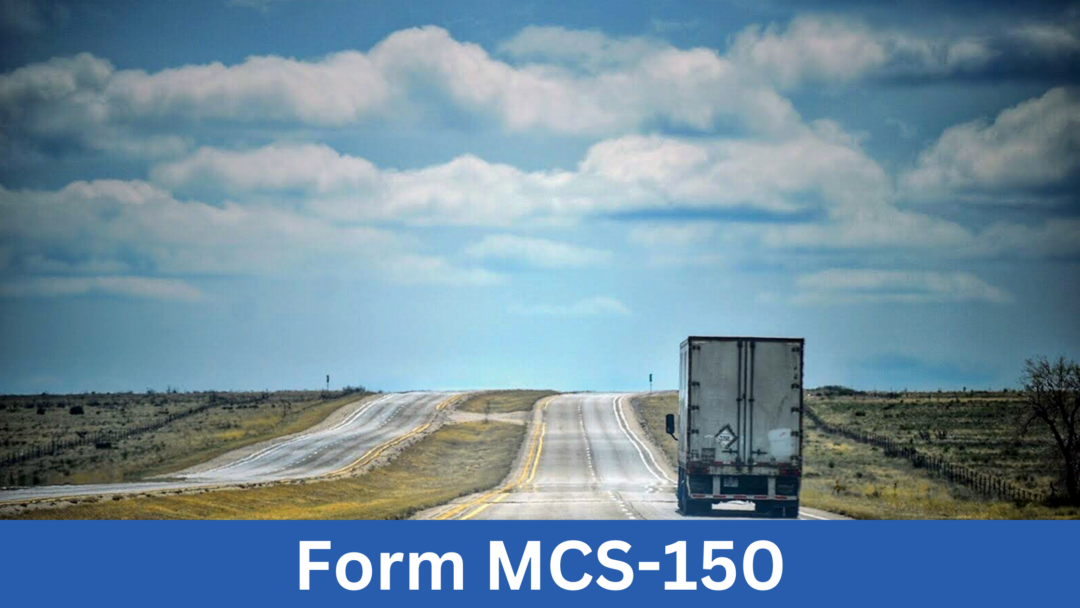The FMCSA registration process requires that companies specify their intended business operation type (e.g., Motor Carrier, Broker, Shipper, Freight Forwarder, or Cargo Tank Facility) and provide other standard information before operating on roadways. This information is submitted using a form known as MCS-150 which stands for Motor Carrier Services.
What is a Form MCS-150
An MCS-150 is a form used by the Federal Motor Carrier Safety Administration (FMCSA) to gather information about a motor carrier’s intentions and fleet size. The form, also known as the Motor Carrier Identification Report, is used by motor carriers engaged in interstate commerce to register with the FMCSA and obtain a USDOT (U.S. Department of Transportation) number.
The MCS-150 form collects essential information about the motor carrier, such as the company’s name, address, contact details, number of vehicles, types of cargo transported, miles driven in the previous year, insurance information, and relevant safety data. Motor carriers are required to update their MCS-150 form every two years or whenever there is a significant change in their operations or fleet size.
The Federal Motor Carrier Safety Administration may deactivate a carrier’s USDOT number if an MCS-150 form is out of date, and the business may be subject to fines of up to $1,000 per day, not to exceed $10,000.
Most common reason for non-compliance: According to FMCSA spokesman Duane DeBruyne, failing to submit the required biennial update is the main reason motor carriers fall into non-compliance with the MCS-150 registration. The second most frequent cause is a lapse in providing proof of the federally required minimum level of insurance.
When to Update form MCS-150
One key reason to frequently update the MCS-150 when operations change is that the information, including the number of power units and annualized vehicle miles traveled, is used by the Safety Measurement System to determine a carrier’s safety performance within the CSA (Compliance, Safety, Accountability) program. As noted by the FMCSA, maintaining current information can enhance safety scores. An outdated MCS-150 form may negatively impact scores due to underreporting power units, inaccurate representation of tractor units versus straight trucks, or misreporting vehicle miles traveled.
DeBruyne strongly suggests updating company records immediately when changes occur and filing upon receipt of the Biennial Update letter.
To complete an MCS-150 form and access instructions for submission, you can visit fmcsa.dot.gov.
MCS-150 Information Requirements
The MCS-150 form seeks to collect information like the number of drivers and trucks your business has, miles traveled in the previous year, insurance information, and more. Some additional information that must be included in the MCS-150 update includes:
- Legal business name
- USDOT Number
- MC Number
- Carrier mileage
- Carrier type (Interstate vs. intrastate, hazardous vs. nonhazardous materials)
- Carrier freight type (Carrier, shipper, broker, freight forwarder, etc.)
- Cargo classification
- Number of vehicles
- Driver information
Get Your MCS-150 Filed Right with DOTReady
Submitting an MCS-150 form or the biennial update is crucial to operating a trucking company in compliance with the regulations. When it’s time for an update, carriers frequently need assistance managing the complexity of their backend filing systems to make sure they have everything they need to complete the required forms.
Fortunately, DOTReady is here to help throughout the process.
Useful Links



